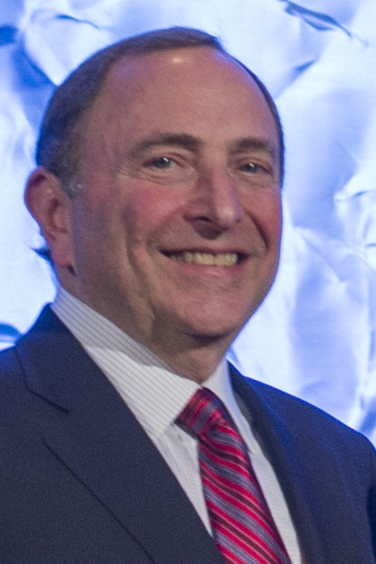It's one thing to be on the wrong side of a health issue as important as concussion-caused brain damage. It's quite another to go on the largest sports-talk radio station in the country and be incorrect and misleading about the underlying science.
Yet, that's what Gary Bettman, Commissioner of the National Hockey League, did recently when he was guest on WFAN in New York discussing the topic of head trauma and its link to CTE, or Chronic Traumatic Encephalopathy, an extremely debilitating degenerative brain disease.
During his April 10 discussion not only did Bettman deny that there was a link between head trauma in hockey and CTE, but the league's chief executive also falsely claimed that top researchers at Boston University's Concussion Legacy Foundation haven't yet reached any conclusions about hockey's culpability.
"Boston, they will tell you that as it relates to hockey, they don't have enough evidence to reach any conclusions, and they have told me that directly," said Bettman (in adjacent photo), speaking with midday co-hosts Maggie Gray and Chris Carlin.
 When CLF officials learned of Bettman's comment, it was immediately challenged as "misstating our conversation," which took place at a meeting between the parties in 2012. At the time the brains of four deceased NHL players had already been examined and shown to have evidence of CTE.
When CLF officials learned of Bettman's comment, it was immediately challenged as "misstating our conversation," which took place at a meeting between the parties in 2012. At the time the brains of four deceased NHL players had already been examined and shown to have evidence of CTE.
"Three engaged in regular fights (Bob Probert, Derek Boogaard, Reggie Fleming), and the fourth, while not considered a fighter, had a record of 14 fights over a 14-year career (Rick Martin)," responded Dr. Ann McKee, Director of BU's CTE Center, and Chris Nowinski, Ph.D., the foundation's co-founder, in a joint statement.
“CTE was first described in boxers, so it was not a surprise to diagnose CTE in [ice hockey] fighters. We told Mr. Bettman that with that sample, we could not conclude if the presence of CTE was most likely associated with head impact exposure from normal hockey play or fights," the statement continued. “However, we were clear that the evidence supported the conclusion that in those four former NHL players, their CTE was due to the head impacts they received as a hockey player who participated in fights as part of the game.
“Therefore, it is misleading for Mr. Bettman to say we haven’t reached any conclusions. The evidence clearly supports that CTE is associated with ice hockey play."
Since 2012, researchers have uncovered even more cases of CTE in former players, including some from junior hockey leagues.
In stark contrast to the NFL, which has finally accepted the science linking concussions – as well as the accumulation of years of asymptomatic trauma, or subconcussions – to CTE, the National Hockey League under Bettman's direction has steadfastly rejected any connection between his sport and this frightening injury. That said, it's hard to square this ongoing denial with his forward-thinking, 2016 initiative designed to handle on-ice concussions.
Apparently, there's little doubt that Bettman's public denials are strategic, so as not to expose the NHL to a flood of litigation from injured former players and the families of late players, a scenario that eventually swamped the NFL to the tune of roughly $1 billion. But considering how much we continually learn about the effects of hits to the head, brain trauma and CTE, it's now fair to ask: How much longer can Bettman keep up this ostrich routine?




